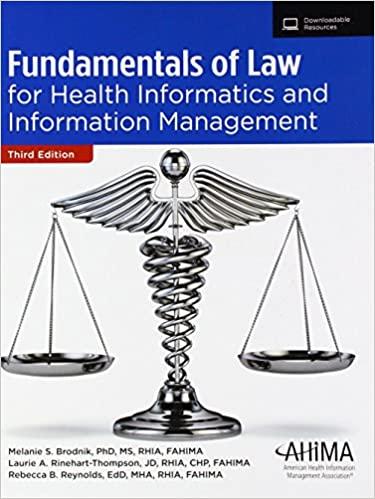Question
In a real estate contract, two parties enter into the contract to exchange real property. As the closing date approaches, the sellers have changed their
In a real estate contract, two parties enter into the contract to exchange real property. As the closing date approaches, the sellers have changed their minds and have decided that they are not willing to move. Compare and contrast the difference between intellectual property, real property, and personal property. Then, identify the defenses to a breach-of-contract action and which is the best action in this scenario?
There are two primary options for remedies for breach of contract:monetary and equitable.
Money Damages
Money damages are a legal remedy designed to compensate a party for the loss of the bargain.
- Compensatorydamages compensate the injured party only for damages actually sustained.
- Incidentaldamages are for expenses caused directly by a breach of contract, such as the cost of obtaining performance from another source.
- Consequentialdamages flow from the party's breach and were foreseeable at the time the contract was formed.
Equitable Remedies
The following equitable remedies are available only in limited circumstances:
- Rescissionis an action to undo or cancel the contract.When a contract is rescinded, restitution must be made.
- Reformationis an action asking the court to rewrite the contract to reflect the parties' true agreement.
- Specific performance, which requires a party to perform the contract, is available only when money damages are inadequate and the contract isn't for personal services.
Step by Step Solution
There are 3 Steps involved in it
Step: 1

Get Instant Access to Expert-Tailored Solutions
See step-by-step solutions with expert insights and AI powered tools for academic success
Step: 2

Step: 3

Ace Your Homework with AI
Get the answers you need in no time with our AI-driven, step-by-step assistance
Get Started


